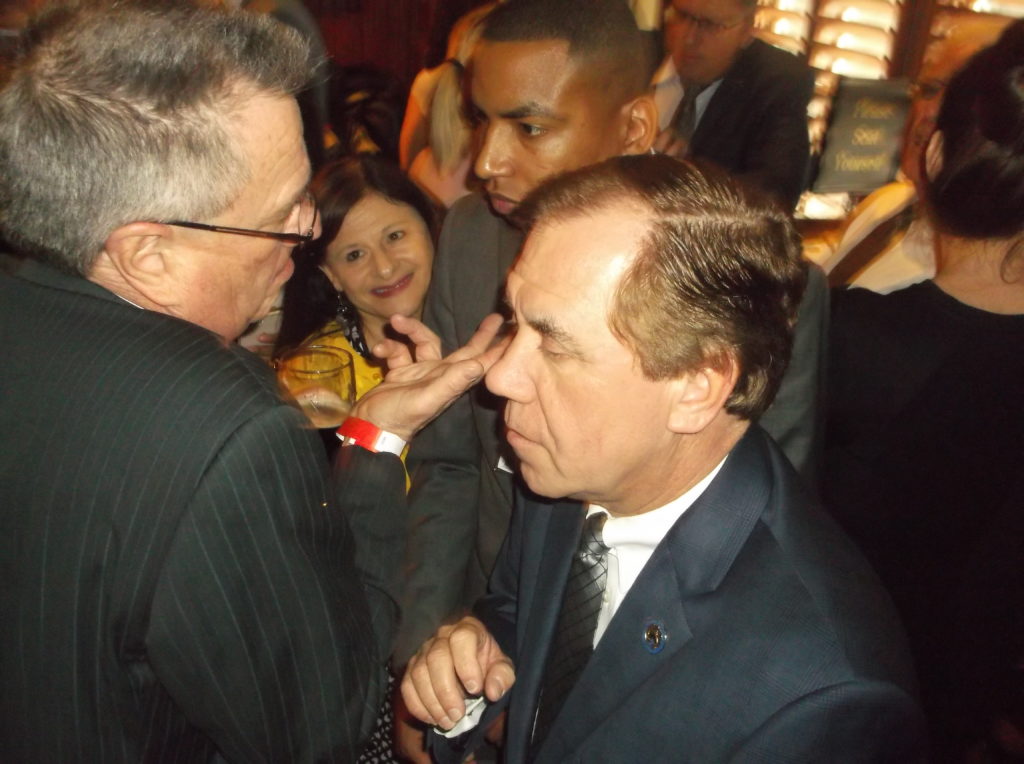Threat of a Government Shutdown Embarrassment will Nudge Murphy Toward Sweeney/Coughlin

BY CARL GOLDEN
Seemingly undaunted by his continuing inability to persuade the Democratic legislative leaders to support his $1.7 billion tax increase package, Gov. Phil Murphy plunged deeper into dangerous political waters when he intimated he’d be open to additional tax increases in the future if revenue growth fails to meet expectations and jeopardizes his ambitious agenda.
Senate President Steve Sweeney (D-Gloucester) and Assembly Speaker Craig Coughlin (D-Middlesex) haven’t budged from their positions opposing the tax increases in the governor’s budget and were joined last week by Assembly Majority Leader Louis Greenwald (D-Camden) who warned the Administration there exists “no appetite” in the Legislature for raising taxes.
Greenwald’s opposition is significant because, as party leader, his view reflects the consensus of his 53 Democratic colleagues.
Democrats were never comfortable with Murphy’s plan to increase the income tax on those earning $1 million or more a year, restoring the sales tax to seven per cent and extending it to certain consumer services.
Coming on the heels of a disappointing revenue result in April --- a month traditionally relied upon for a bump in income tax collections --- Murphy, by raising the possibility of seeking future tax increases, must have sent shivers through legislative Democrats fearful of a “here we go again” tax raising spree.
Equally disappointing was the estimate offered by Treasurer Elizabeth Maher Muoio that revenue from now-legal sports betting when up and running would produce a puny $13 million in tax revenue.
To add to the fiscal woes, legalization of marijuana for personal use --- another Murphy initiative --- remains iffy at best and any tax revenue from sales and licensing cannot be relied upon in the budget.
In her appearance before the Senate Budget and Appropriations Committee, the treasurer also made it clear that the obligation to send a balanced budget to the governor lay with the Legislature and, if it refused to adopt the Administration tax proposals, significant spending cuts would be necessary along with program eliminations or delays.
It was close to a “take it or leave it” warning and a sign the Administration would hold the Legislature accountable for any pain or uproar resulting from cost cutting.
Sweeney and Coughlin appeared unmoved, though. Coughlin, in fact, threw his weight behind a full restoration of the homestead rebate program, adding some $150 million to the budget.
With five weeks remaining before the expiration of the current fiscal year and approval of a new spending plan, talk of stalemate and a potential government shutdown has risen in volume.
Sweeney and Coughlin are fully committed at this point and the only wiggle room they’ve left themselves is their view that a tax increase would be “a last resort.”
Murphy is equally committed to his agenda and hasn’t shown any inclination that he’s willing to back away from the tax increases, suggesting by his recent comments that his solution may be more increases.
Murphy’s raising that possibility is more than puzzling, coming as it did at a time when he should be negotiating the plan he’s placed before the Legislature. Suggesting additional tax increases in the midst of the current budget and tax debate --- one he appears to be losing at the moment --- is indicative of a politically naive Administration that fails to understand and appreciate the highly-charged environment in which they find themselves.
Murphy clearly sees his agenda slipping away but seems unable to reverse it. He does not hold a particularly strong hand in light of the hardening anti-tax attitude in the Legislature.
He’s defended his tax increases as vital investments in everything from public education to transportation, catching up and overcoming the failures of his predecessor to keep pace with urgent needs.
His I-didn’t-know-it-was-this-bad defense has been used by previous governors and gained little sympathy in the Legislature. Murphy will likely fare no better.
His oft-repeated rationale that the pain and political risk associated with tax increases now will be short term and more than offset by his programs to grow the economy and produce significant revenues in the future is a vague promise that legislators are unwilling to bet their electoral prospects on.
Moreover, the state economy has experienced little growth --- slightly more than stagnant but considerably less than robust ---- as evidenced by the disappointing tax collections last month. Between 2016 and 2017, for instance, New Jersey’s real GDP grew by 0.9 per cent, compared to a national increase of 2.1 per cent. Further, the 2007 to 2017 compound annual growth rate of the state’s real GDP was 0.2 percent compared to the nation’s 1.2 percent.
It has become increasingly likely that the bulk of Murphy’s agenda will be delayed until next year at best and perhaps beyond, particularly in light of the 2019 mid-term legislative elections.
The last thing candidates need will be a continuing discussion about which taxes to increase and by how much.
Sweeney, Coughlin and Murphy all recognize that a government shutdown would be a major embarrassment for Democrats, undermining their argument that a unified government would benefit the state and its people.
The current impasse will be broken in the larger interest of averting that embarrassment. And, at the moment, it appears Murphy’s quest for his agenda will come up short.
Carl Golden is a senior contributing analyst with the William J. Hughes Center for Public Policy at Stockton University.





